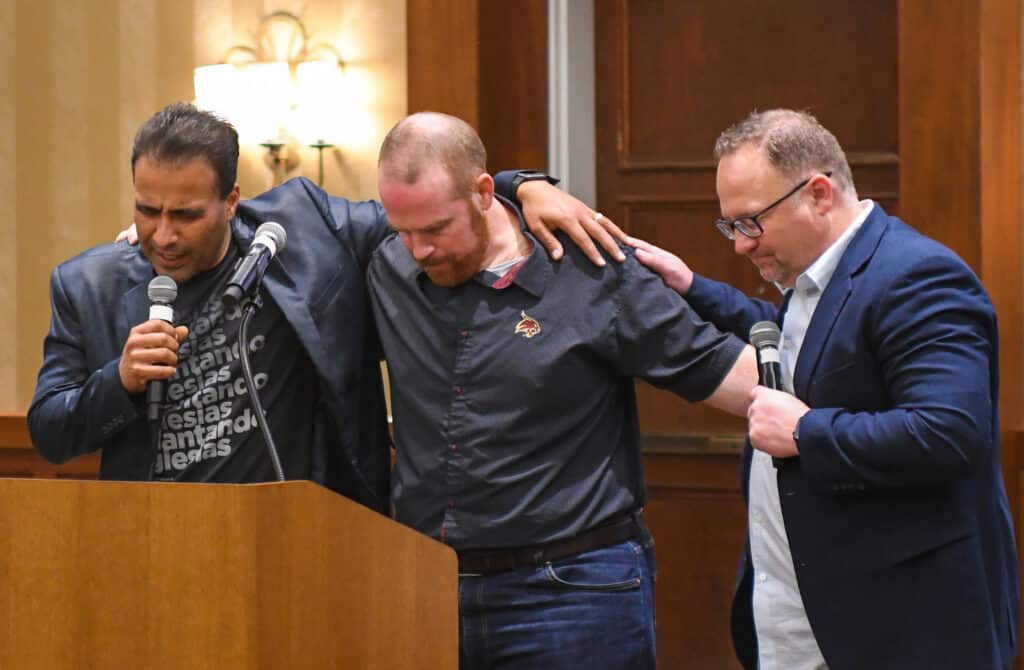AUSTIN With the introduction of two identical bills out of the Texas House and Senate, each earning the blessing of Gov. Greg Abbott, property tax reform promises to highlight debate during the 86th Session of the Texas Legislature. But the bills’ proposed property tax rate cap of 2.5 percent a year concerns some legislators who believe the cap could create shortfalls in local essential services and, particularly, school districts.
House Bill 2 and Senate Bill 2 reduce the amount a local taxing entity can raise rates each year from 8 percent to 2.5 percent. Voters must approve anything higher. Critics claim the lower rate supplants local control and hinders school districts from raising funds as needed. But revenues from the state’s thriving economy can offset anticipated local deficits, said Lt. Gov. Dan Patrick who, along with Abbott and Speaker of the House Dennis Bonnen, introduced the bills in a Jan. 31 press conference at the Capitol.
The long-promised property tax reform has become a more pressing need in recent years, said SB 2 author Sen. Paul Bettencourt, R-Houston, during the press conference. Property tax rates remained constant or even rose as property values have also gone up, hitting property owners twice on their tax bill, he said.
“The Senate and the House have agreed already we will be using billions of those dollars to support our local school districts,” said Bonnen, a Republican from Angleton.
But the legislative leadership failed to cite the specific revenue sources that would finance anticipated shortfalls caused by the 2.5 percent cap. And that concerned Democrat Rep. Trey Martinez Fischer of San Antonio and Eddie Rodriguez of East Austin.
While critical of the plan, they did not dismiss it out of hand during a press conference following the legislation rollout. In addition to concerns over school funding, Martinez said the cap would negatively impact city and county services, particularly first responders.
“This raises more questions than it does answers,” Martinez said. “I have made a commitment to the people I represent that there is nothing more important then making sure we leave this session with a responsible school finance plan that is going to tell the state to do its part.”
He thanked Bonnen for stating the plan requires input from the entire House, which Martinez noted includes 12 newly elected Democrats.
Rodriguez called the rate cap a “non-starter.
“I don’t see how we can look at a bill like this without understanding what school finance reform is going to look like,” he said. Without that information, discussion of the revenue cap “should slow down.”
Bipartisan cooperation will be essential in drafting legislation that will give property tax relief and meet the educational needs of all 1,247 Texas school districts, according to Sen. Larry Taylor, R-Friendswood and Sen. Eddie Lucio, D-Brownsville, the Senate Education Committee chairman and vice chairman, respectively.
“As a state, our baseline measure of adequacy should be ensuring that the needs of all students are met,” Lucio said.
The senators’ districts in suburban Houston and the Rio Grande Valley represent the diverse socio-economic student population that make equitably funding local schools a challenge.
For decades the state’s school funding mechanism has been on trial. Property-rich school districts can raise—and spend—far more money than property-poor school districts, and that funding disparity creates educational inequity among Texas’ school children according to critics who have sought relief in court since 1983.
In a 2016 decision that essentially declared the funding system flawed but constitutional, the Texas Supreme Court, for now, removed itself from the debate. The Legislature, not the court, must determine what is equitable, they unanimously ruled.
“The Legislature was always reacting, essentially, to what the [Texas] Supreme Court was saying was necessary to make the system constitutional,” said Kara Belew, senior policy advisor at the Texas Public Policy Foundation.
This session marks the first time in decades the Legislature will draft school funding proposals without the court or a lawsuit dictating the content, Belew told the TEXAN. The governor’s 2.5 percent property tax cap is a “great start” but falls short of the TPPF’s end-game – eliminating nearly half of the property tax burden by ending the school maintenance and operations property tax.
“Ours is the only plan that genuinely lowers property taxes where you will see your bill go down from one year to the next. All of the other plans just slow down the growth tax,” she said.
The TPPF plan also employs a 2.5 percent per year rate cap and, using the state’s surplus revenue, pays down the local tax bill until it is eliminated over 10-12 years.
The revenue surplus comes from reduced spending, Belew said. Sales taxes generate the greatest source of revenue for the state, and in a booming economy that means more money in state coffers. The TPPF plan also relies on revenue generated from the Permian Basin oil reserves.
But in his January report on revenue estimates for 2020-21, Texas Comptroller Glenn Hegar warned that “any consideration of public education finance should recognize the higher inherent volatility of state revenue.
“The sales tax that supplies well over half of all state tax revenue is vulnerable to the effects of economic downturns,” he said. “Severance taxes are even more volatile, often varying by 50 percent or more annually.”
But building a surplus also comes from limited and reduced spending at the state level, Belew said.
Lucio, whose district includes some of Texas’s poorest counties, wants to ensure impartial education opportunities for all students, including proper funding for special education.
Despite different spending priorities—and the bitter political divide on the national front—Taylor said the “relationships across the aisle are quite congenial” at the Texas Capitol.
And their shared Christian faith guides their work.
“Legislators should take seriously God’s command to love one another, for how we treat others is a true test of our love for Christ,” Lucio said.














